I believe it was Margaret Mead who said: Never doubt thata small group of thoughtful committed individuals can change the world.In fact, it’s the only thing that ever has.
SCAMP (Saving Cheatham Animals Mission PAWSible) is a smart model for how small group of committed individuals can help a publicly funded shelter. There’s so much to love about SCAMP (including its namesake pup!).
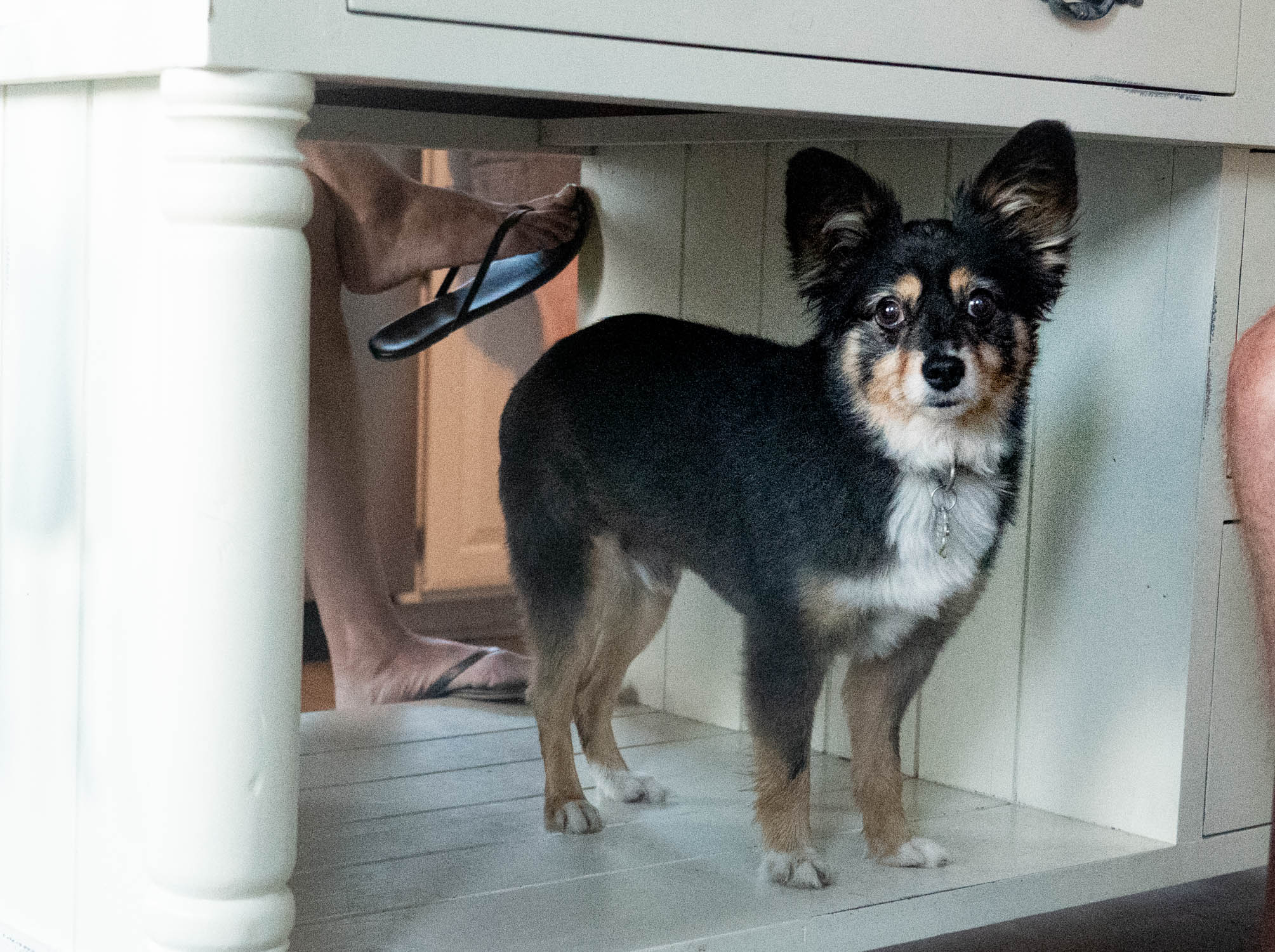
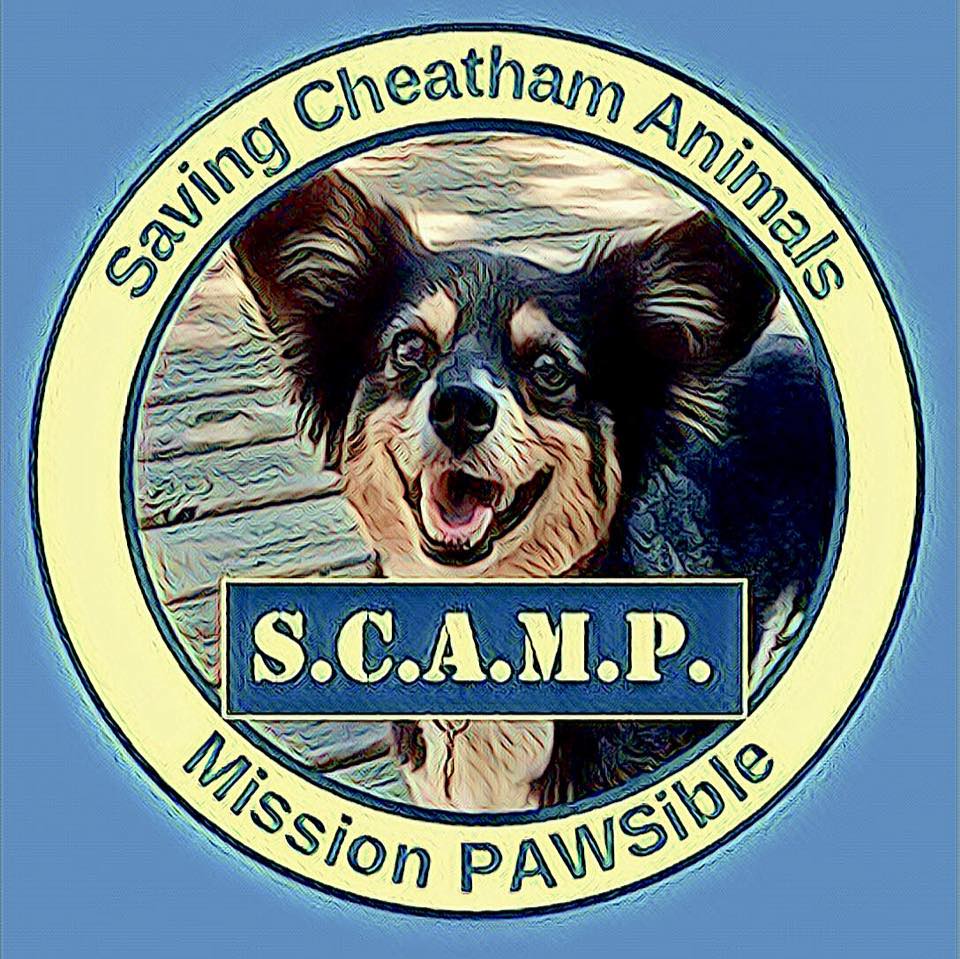
SCAMP is a 501c3 organization that raises money to directly help the animals at Cheatham County Animal Shelter. SCAMP provides immediate help by purchasing needed supplies, veterinary services, and pretty much anything outside the budget that a shelter would have to requisition the county government to obtain.
Cheatham County Animal shelter, like most municipal shelters has a modest budget that simply does not cover much beyond the basic needs of the more than one thousand animals who pass through their doors each year. One or two unexpected veterinary bills for emergency services can empty out the medical budget category. So when the shelter needs something basic, like kitten formula or health certificates, SCAMP can quickly fill that need without the red tape of requesting funds and waiting for those funds to become available. A hungry kitten or a dog headed for transport doesn’t have the luxury of time to wait.
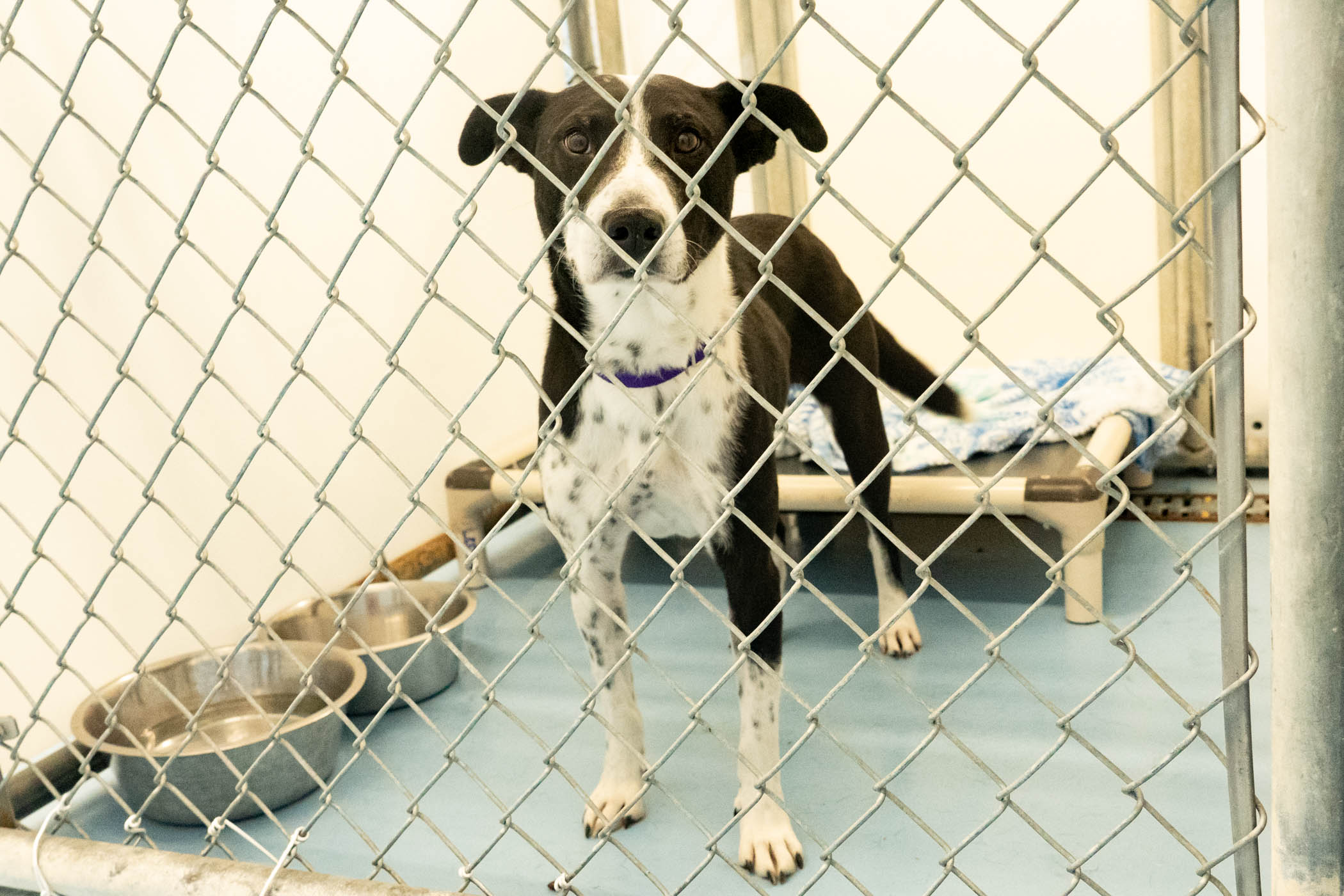
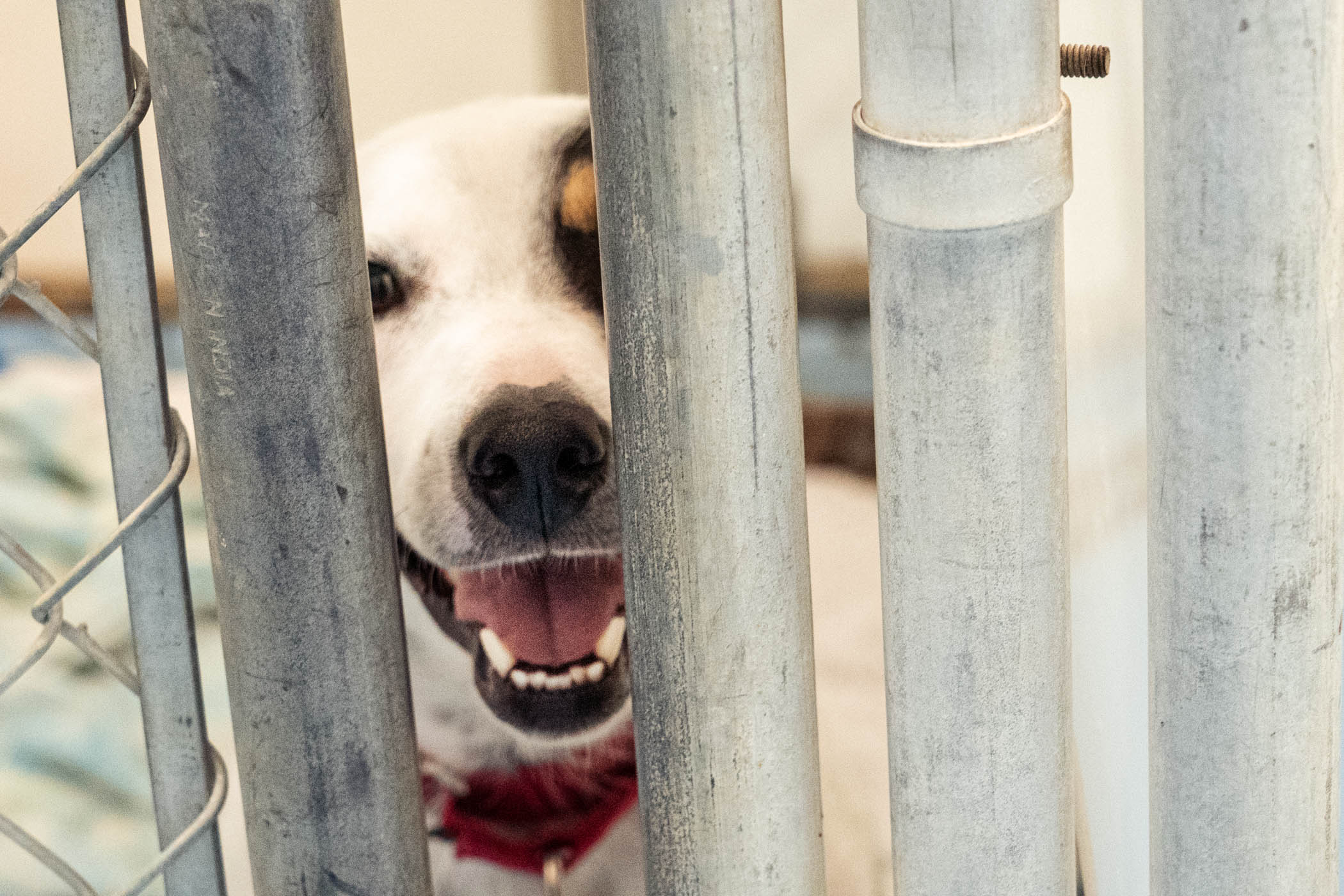
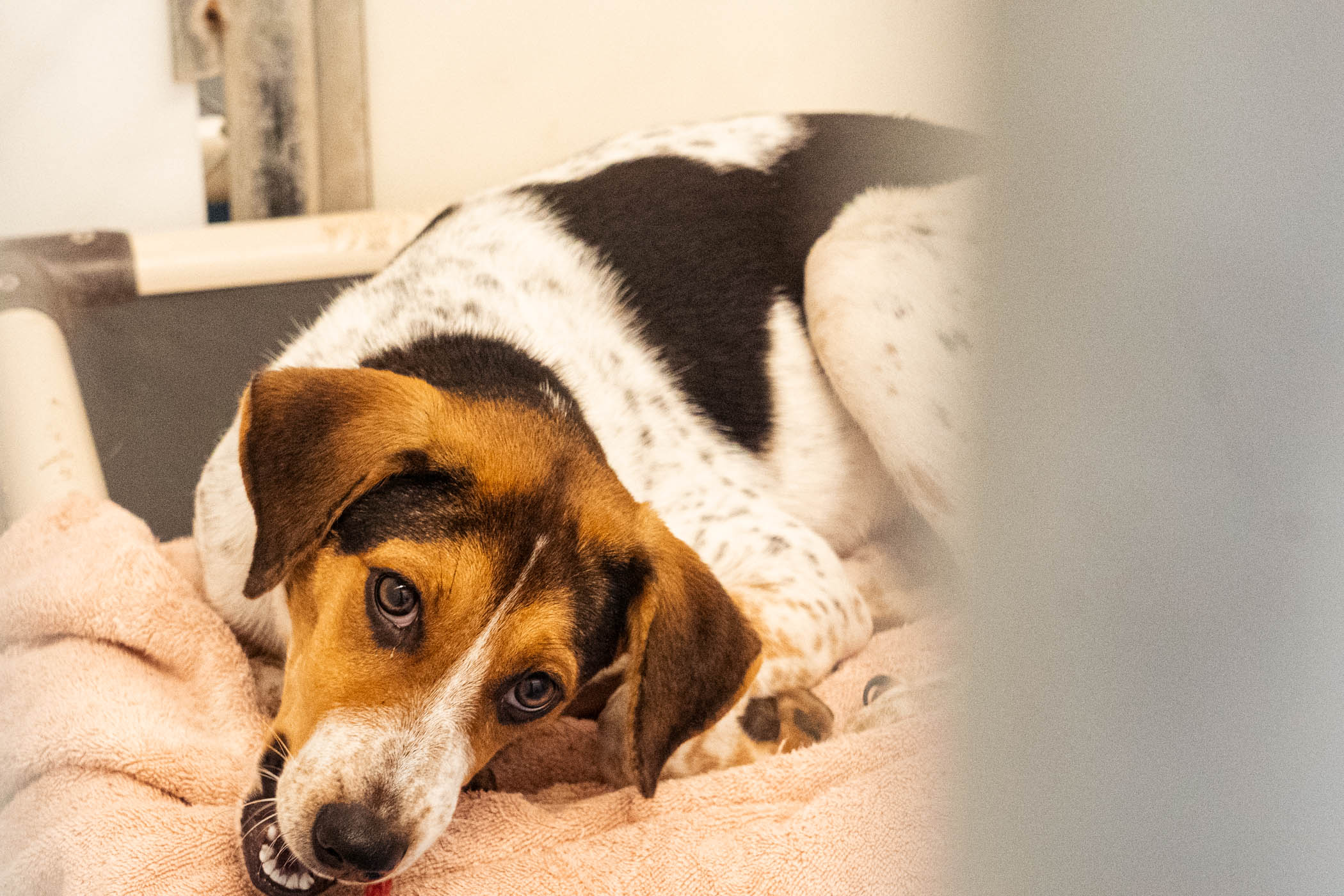
SCAMP can make an initiative that is proactive, but not in the current budget, happen quickly. For example, Cheatham shelter wanted to outfit their dogs with martingale collars so anxious animals who may never have walked on leash didn’t have to be on a sliplead, and so newly adopted animals don’t back out of their collars and turn into lost dogs. Great idea, but not in this year’s budget, so SCAMP put out a Facebook post and quickly raised the cash to buy collars that week instead of next year.
But why can’t the shelter just raise their own money? Sometimes they can, but money donated to the county, goes to the county and then to the shelter (unless it gets diverted somewhere else). That creates a lack of transparency and means that a donation may not go where the donor intended. And even counties do send the money where it was meant to go, still tie up that money in policies and paperwork, delaying much needed funds from getting to the shelter.
Being an independent nonprofit that supports the shelter, SCAMP offers the community a way to financially help the shelter without creating more work for the director, and more than that, it helps the county tremendously by funding projects without taking up personnel time and energies, saving so many steps and ultimately benefitting the animals.
Key to SCAMP’s success has been its ability to work with its current Cheatham director. Brittany is quick to say how blessed she is to have incredible volunteers who created SCAMP and work with her to help the animals. The day before our visit, a Sunday, Brittany was the only paid staff member working. This is not unusual for a small shelter with a tiny staff. Without the dedicated volunteers who come in to help, she’d be left alone to care for all of the animals.
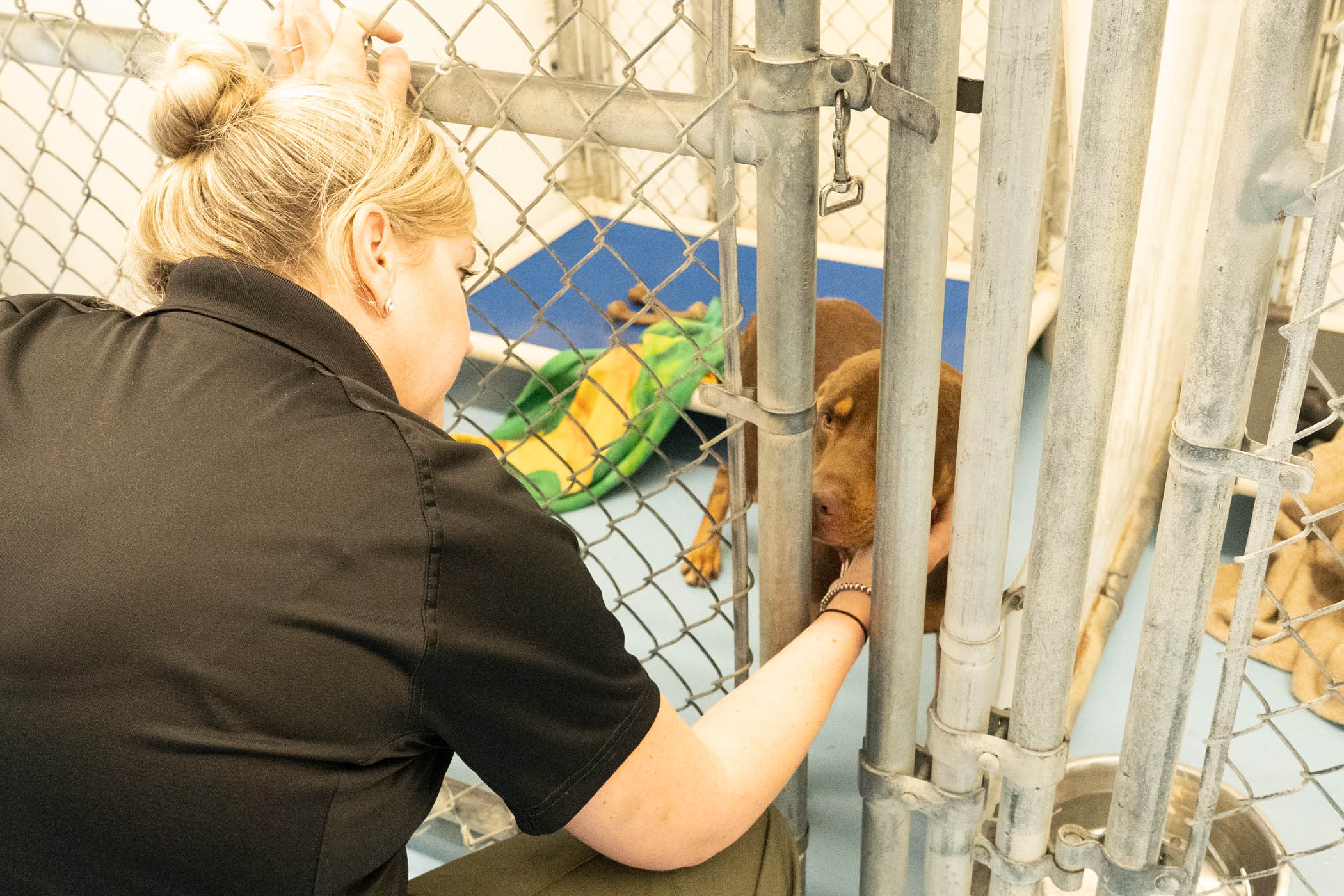
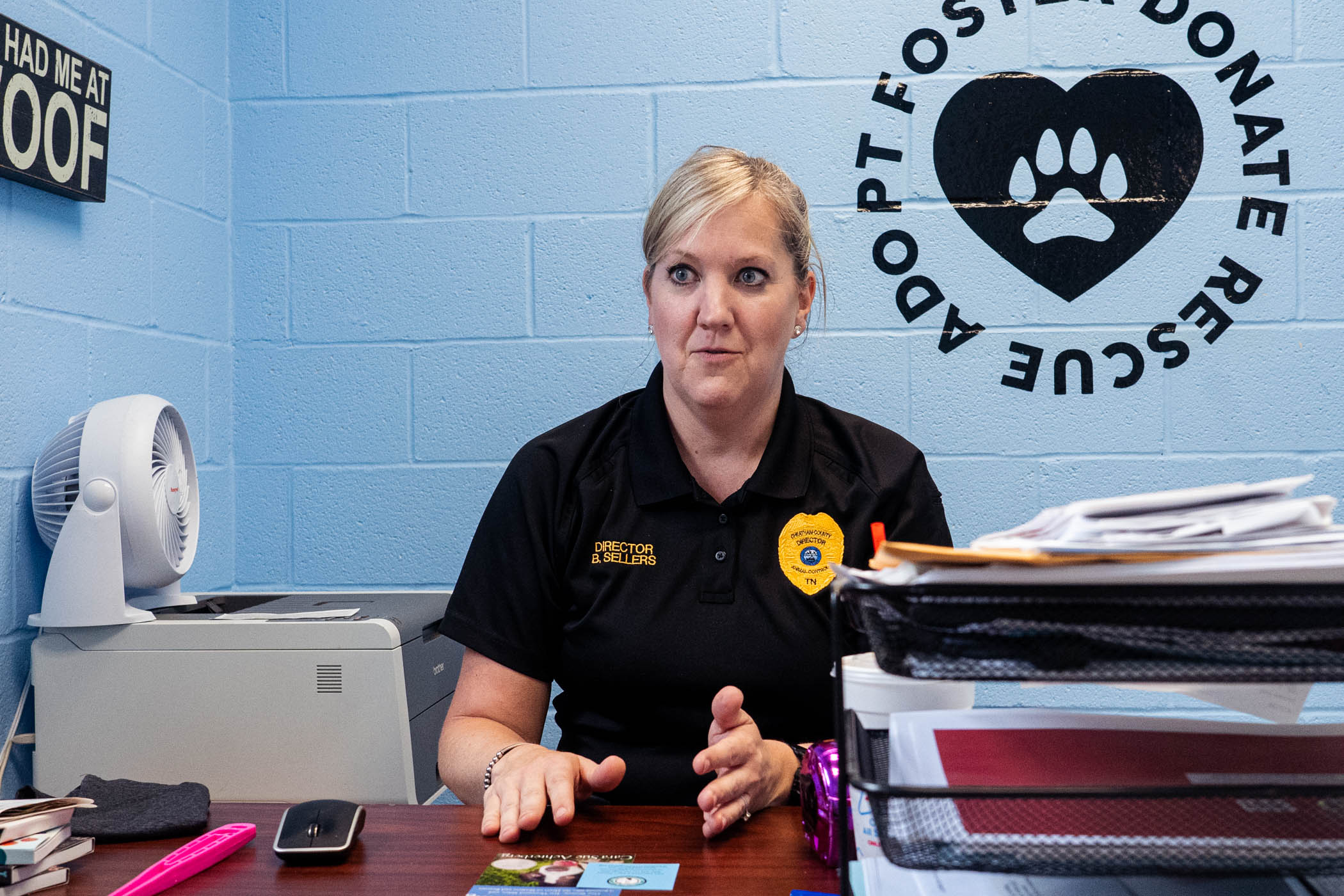
New to the world of sheltering in 2020 (having been an event planner for a winery prior to going through ACO training), Brittany comes to the job with a refreshingly positive, open-minded, and open-hearted attitude. Her current goals are to build trust between the community and the shelter, expand their spay/neuter efforts, and involve even more volunteers.
Volunteers are what make it possible for the dogs at the Cheatham shelter to get 3-4 walks a day and time outside in playgroups. Lots of human interaction and smart policies mean the dogs learn basic manners, get plenty of exercise, and remember what it’s like to be a dog. Just like prisons can dehumanize people, shelters can destroy dogs. The volunteers and staff at Cheatham know their animals well and this leads to better adoption placements and rescue commitments.
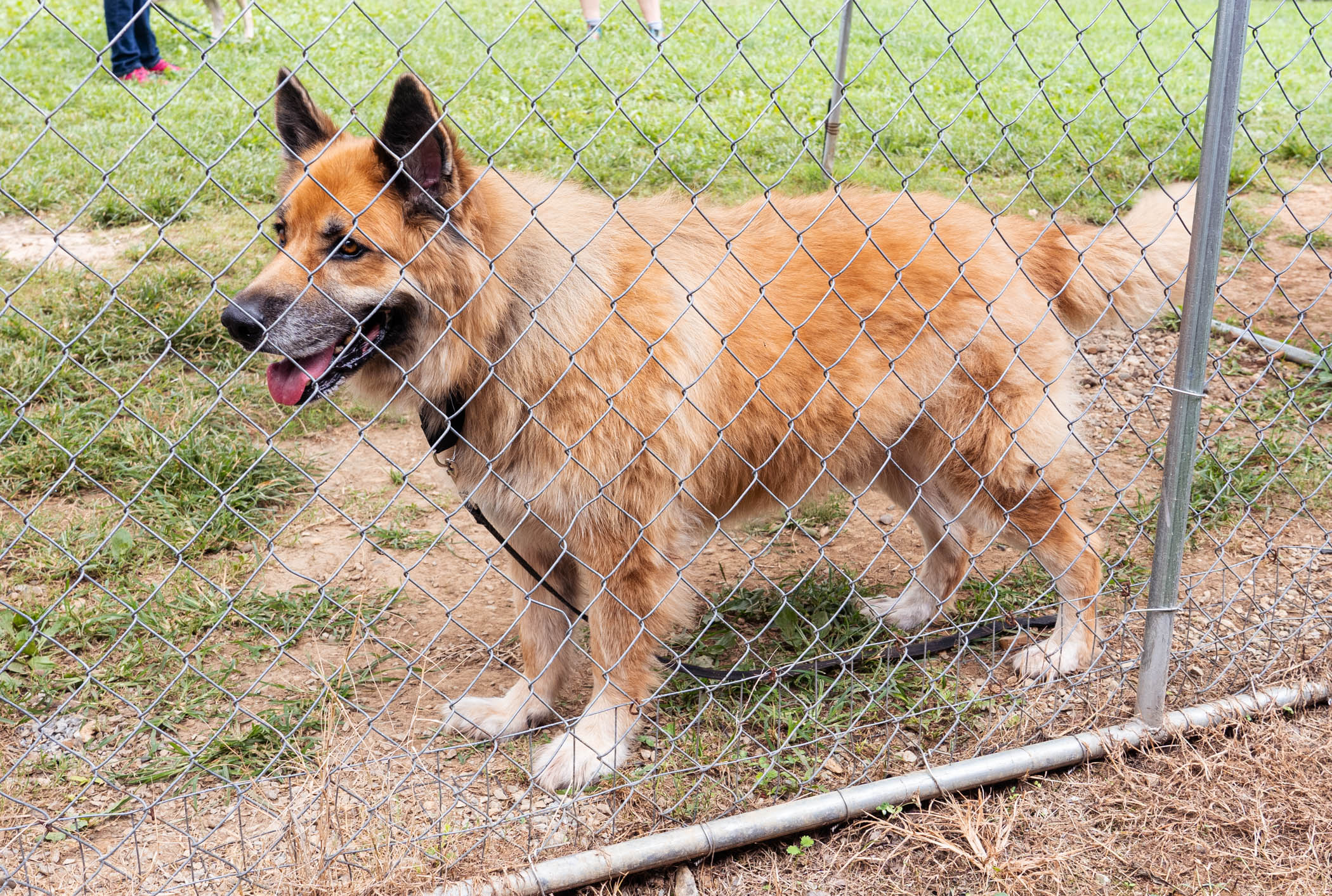
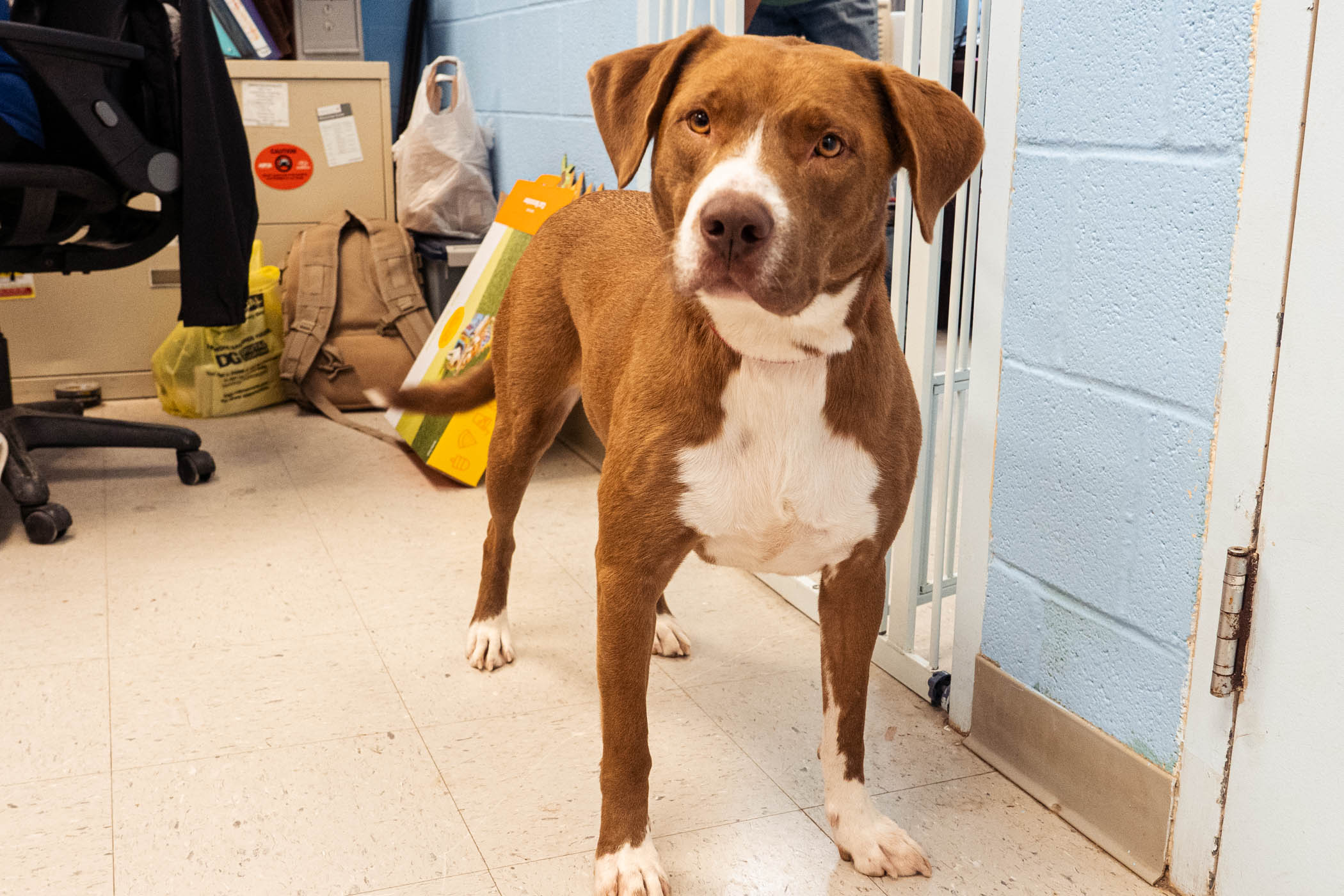
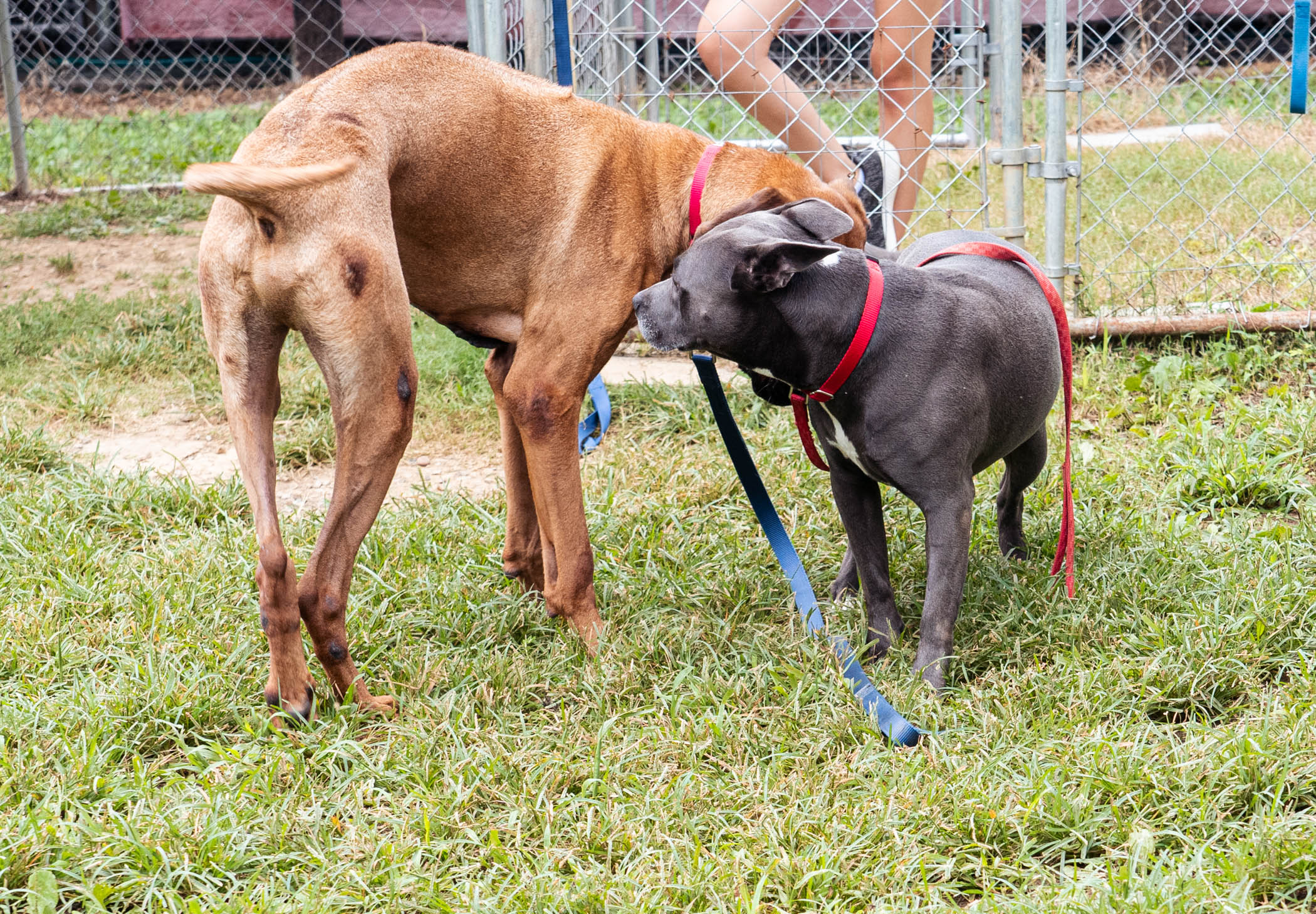
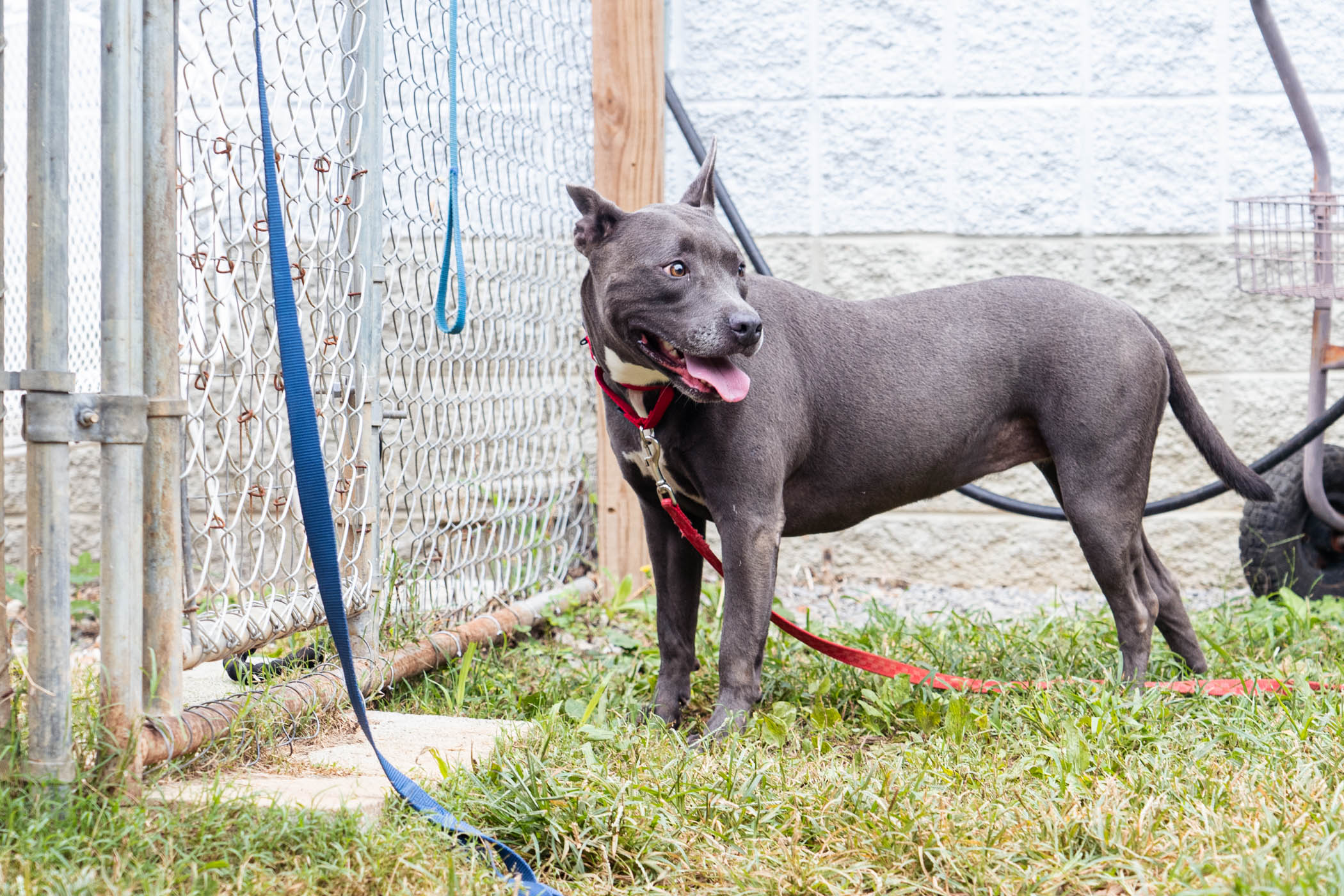
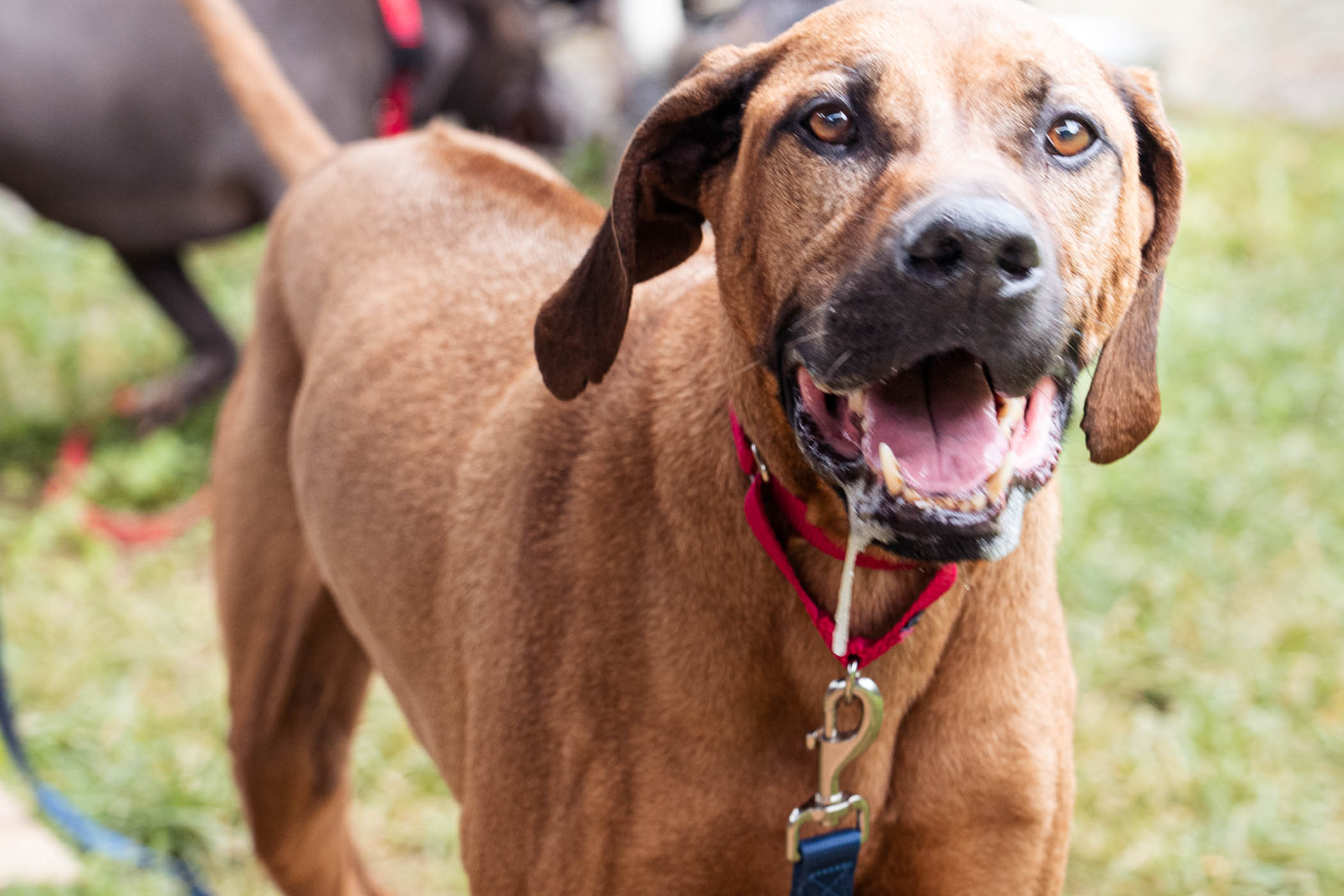
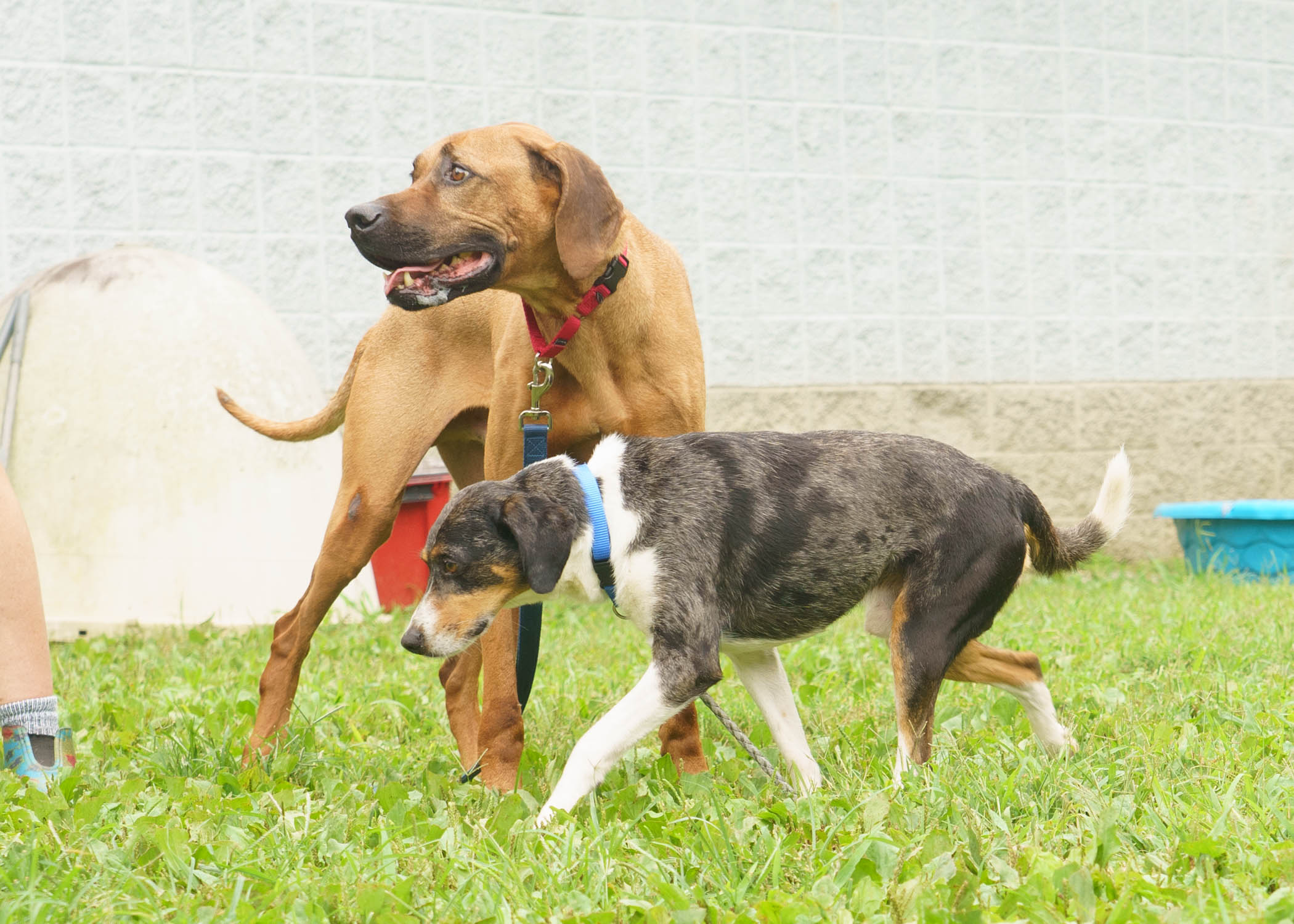
It was exciting for us to see the continued success of this small shelter that proves even in a rural county with a history of distrust between the shelter and the community, a small budget, and an older facility, you can save every animal. Cheatham continues to be a no-kill shelter, only a few years after having been a high-kill shelter, and through the transition of several directors. It’s exactly why we keep saying that the problem of animals suffering and dying in southern shelters is fixable. It is and Cheatham continues to prove it so.
I would attribute much of that success to the committed volunteer base, headed up by rescue rock star Robin who has set up volunteer programs in numerous area operations and continues to advocate for animals in Tennessee.
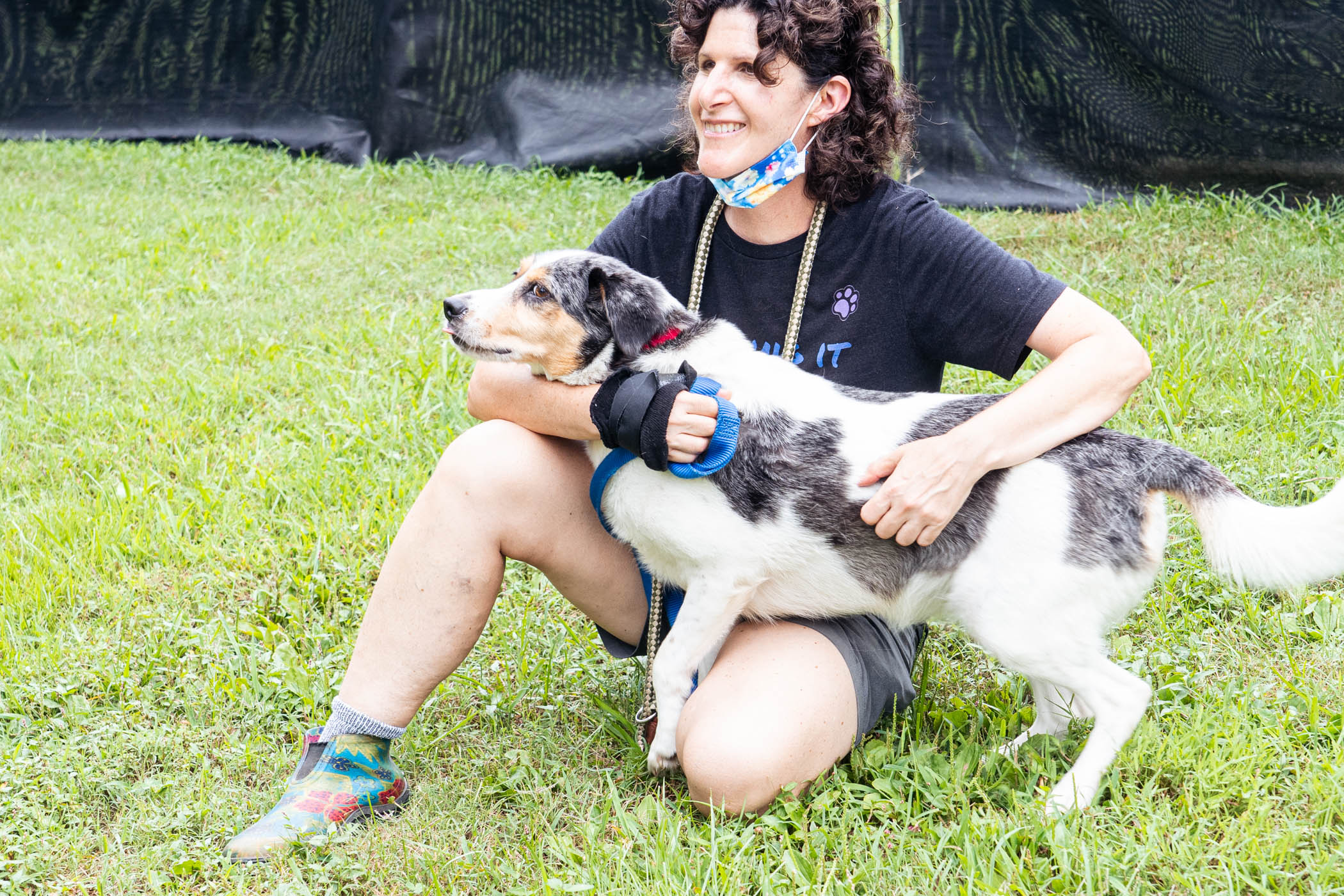
The last time we visited, I wrote about the amazing interactive trails at Cheatham that involve the community and create an attraction that brings people across the river to visit the tiny shelter. I took a walk on one of the trails with Robin and an adoptable dog (the price tag for using the trails), and marveled at her vision for SCAMP. Once again, it came down to one person deciding to do something to help the animals. And then not letting doubt, personalities, or historical obstacles get in her way.

Robin is a doctor, not a business person or fundraising specialist or even an animal expert. What she is, is a person who wants to help the animals in her county. So she does.
I was a guest on an excellent dog podcast this week and one of the questions they asked was how do you fix this problem of so many dogs suffering and dying in the shelters without a lot of money? I told them it takes three things: A good volunteer program, a reliable foster program, and strong rescue connections. None of those items require money.
Cheatham has all of those things, but they’re lucky enough to have one other key ingredient—a motivated and positive director who is determined not to kill animals. That’s it, folks. That’s all it takes.
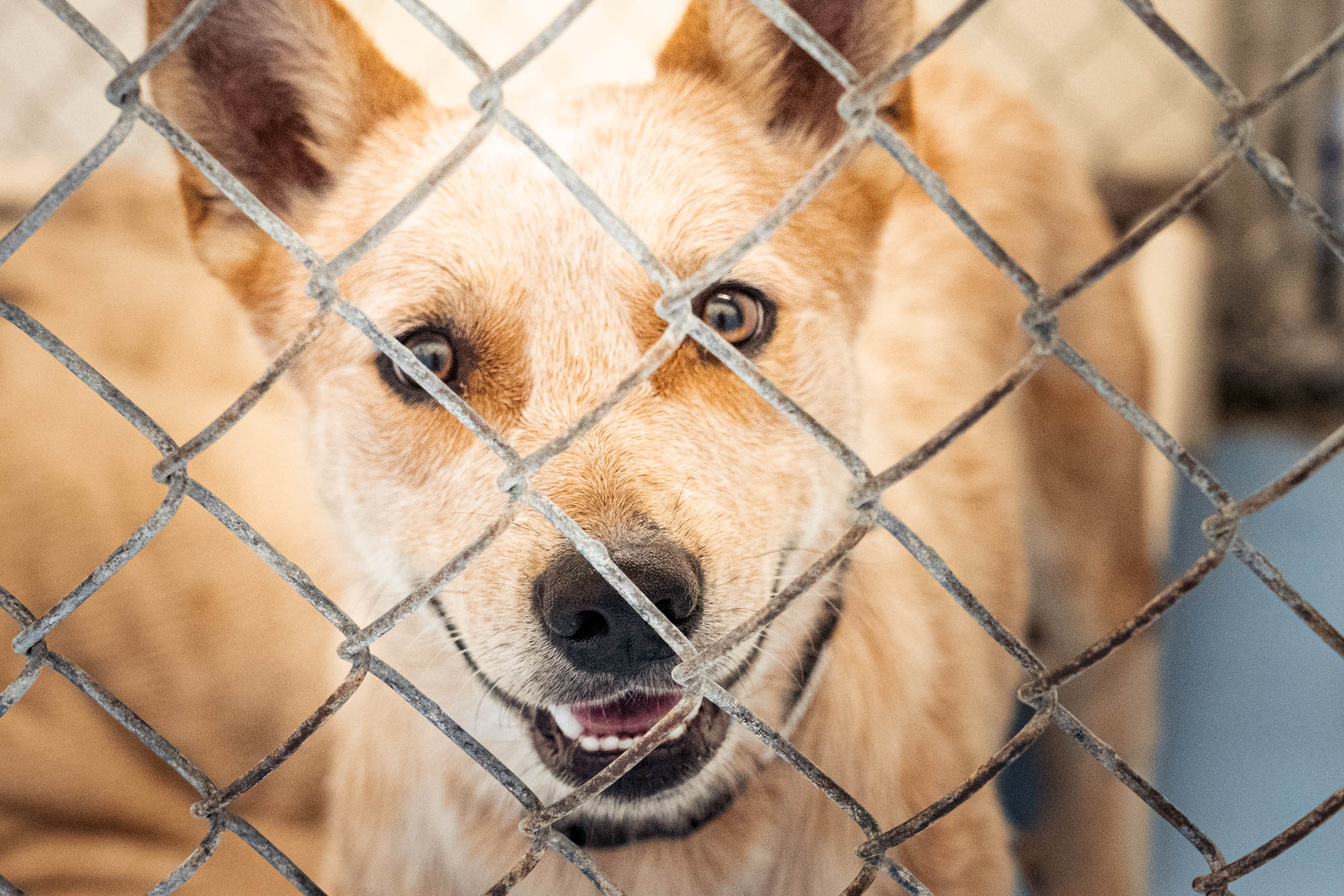
This is fixable. We just need people determined to fix it.
Until each one has a home,
Cara
Please help us by subscribing (button on right side) and sharing this blog. You can also keep track of us on Facebook, Instagram, and YouTube (WE JUST NEED 14 MORE SUBSCRIBERS TO REACH 100!)
The mission of Who Will Let the Dogs Out (we call it Waldo for short) is to raise awareness and resources for homeless dogs and the heroes who fight for them.

You can learn more about what is happening in our southern shelters and rescues in the book, One Hundred Dogs & Counting: One Woman, Ten Thousand Miles, and a Journey Into the Heart of Shelters and Rescues (Pegasus Books, 2020) which tells the story of a challenging foster dog who inspired the author to travel south to find out where all the dogs were coming from. It tells the story of how Who Will Let the Dogs Out began. Find it anywhere books are sold. A portion of the proceeds of every book sold will go to help unwanted animals in the south.
Amber’s Halfway Homeis a short documentary film we produced in partnership with Farnival Films. It tells the story of a remarkable woman and one day of rescue in western Tennessee. Selected for thirteen festivals and won five awards, (to date) it is a beautiful, heartbreaking, inspiring story we hope will compel viewers to work for change.
For more information on any of our projects or to talk about rescue in your neck of the woods, please email whowillletthedogsout@gmail.com or carasueachterberg@gmail.com.



Lin
Your three points are all great points. But more than money, making those three things a reality takes a lot of time. I work in a library, and we can put on the programs we do, get the books we have, and even the upholstery on our furniture because we have an incredibly generous Friends organization. These ladies put in a lot of hours running the bookstore and soliciting donations to support us. We use volunteers in the library, and although I love and appreciate them, it takes a lot of time to schedule and train them. And most volunteers last a couple of years at the most, so it’s an ongoing recruitment. I really hope that Brittany and Robin don’t burn out.
Cara Sue Achterberg
I think Cheatham is in a good place at the moment, but I also think both Brittany and Robin are smart and aware of the potential for burnout. They have a large, well-organized and bonded group of volunteers that helps spread the load. The clear practices and training reduce the amount of supervision any of the volunteers need. One other thing that we saw was the simple enjoyment everyone at Cheatham seemed to get from the work they were doing. And that can often be the most important factor.